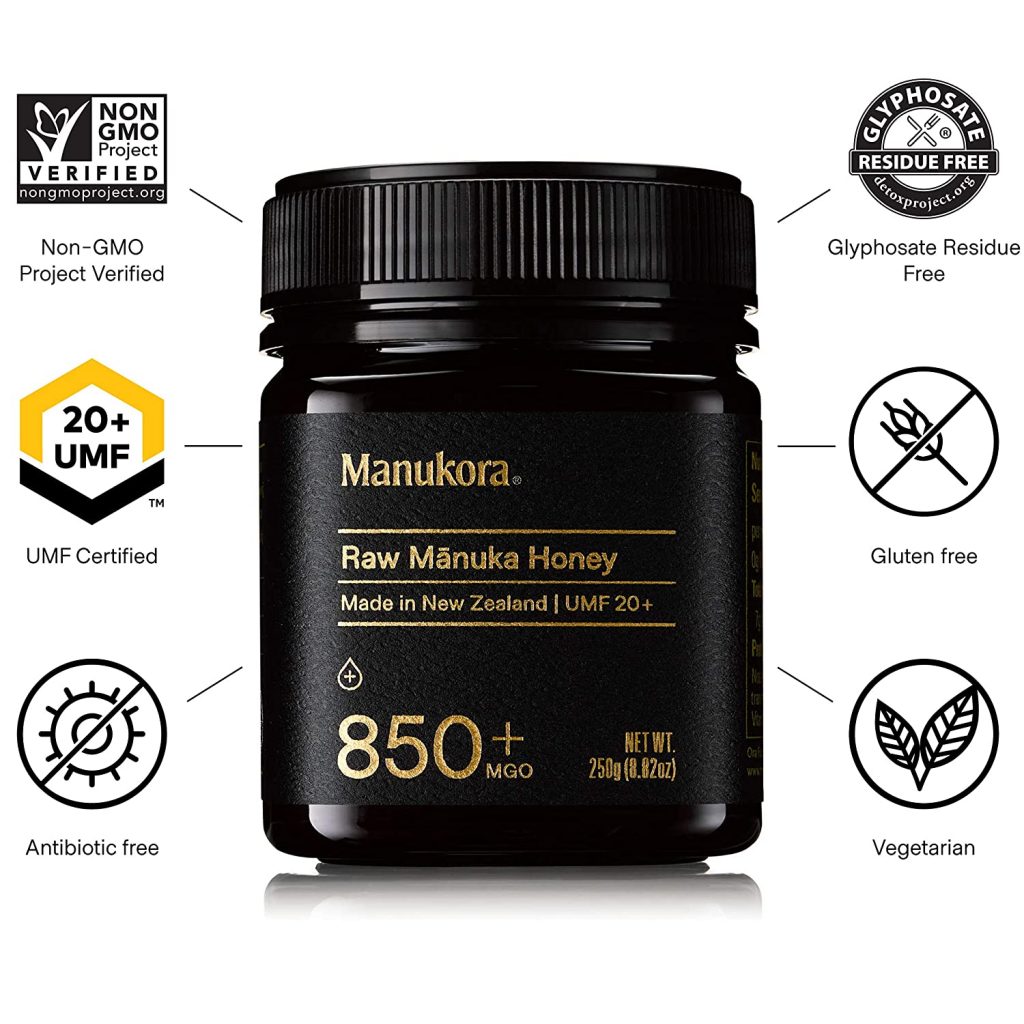Manuka Honey's Benefits
Manuka honey is a dark monofloral honey rich in phenolic content, and is gaining much attention for its antimicrobial activity. Researchers have found that honey is effective against a wide range of pathogens.
See Empirical Research
Jewell, Tim. “What Is Phenol? Medical Uses, Health Benefits, and Risks.” Healthline, Healthline Media, 26 Jan. 2019, https://www.healthline.com/health/what-is-phenol#:~:text=Despite%20its%20toxicity%20in%20its%20pure%20form%2C%20phenol,your%20DNA%20as%20well%20as%20long-term%20health%20effects.
Johnston, Matthew, et al. “Antibacterial Activity of Manuka Honey and Its Components: An Overview.” AIMS Microbiology, AIMS Press, 27 Nov. 2018, https://www.ncbi.nlm.nih.gov/pmc/articles/PMC6613335/#:~:text=Manuka%20honey%20is%20a%20dark%20monofloral%20honey%20rich,is%20effective%20against%20a%20wide%20range%20of%20pathogens.
The Benefits of Manuka Honey
By Sensiblyshop.com
Any day of the week you can pour yourself a cup of tea (preferably green) and add a tablespoon of delicious Manuka honey giving yourself a pleasant boost of energy packed with the power of natural antioxidant.
Manuka honey has been studied for a very long time and used for medicinal purposes for even longer. Some of the world’s oldest literature has documented the medical benefits of this honey. The beneficial medicinal properties like its antimicrobial components are more than exciting in the medical world.
The health benefits come from the floral (flower) source used by the bees. This dark monofloral honey is rich in phenolic content which gives it its antimicrobial powers. Phenols are a plant-based compound known to be an antioxidant. Phenols can stop the reaction of free radicals with other molecules in your body, preventing damage to your DNA and contribute to long-term health effects.
Manuka honey is effective against a wide range of pathogens based on scientific research. The antibacterial potency of Manuka honey was found to be related to the Unique Manuka Factor (UMF) rating, that is correlated with the methylglyoxal and total phenols content. Studies have shown that different types of Manuka honey have differing effects and Gram-negative bacteria and are more resistant than Gram-positive bacteria. The bacterial resistance to honey as an antimicrobial agent has yet to be identified, possibly due to the presence of a complex mixture of methylglyoxal and other components. This means that the bacteria can be neutralized. Manuka honey was also reported to change a bacterium’s shape and size through a process called septal ring alteration, which affect cell morphology and growth.
Wound Healing Benefits
Manuka honey can help with wound healing. One of the components of honey is hydrogen peroxide. Hydrogen peroxide has antibacterial properties. It can help your body fight off bacterial infections. When the peroxide comes in contact with the pathogen it creates a foam. This foam makes the pathogen less sticky and easier to drain.
Cancer-Fighting
Manuka honey can inhibit the process of carcinogenesis by controlling different molecular processes, and progression of cancer cells.
We can do more for ourselves than we think. We can use the methods that our fore parents used to increase our life force and be our best selves.
A Quick Word of Encouragement
No one thing can give you wholeness and peace of mind. It is the combination of a high vibration attitude, pliability in the face of high vibration knowledge and high vibration living that will give you the best outcome. It is a journey that we all must take and appreciate!
Thank you for reading!
Be Blessed!
Featured Product
- AUTHENTIC RAW MANUKA HONEY: With its medicinal properties and health benefits, Manukora UMF 20+/MGO 850+, non-GMO Mānuka honey is nature’s greatest gift to support everyday wellness. This natural honey comes in a gift worthy box, making it the perfect present for yourself or someone special.
- UMF & MGO CERTIFIED: Manukora is a licensed UMF Assocation member, the only independent organization that verifies the purity and quality of Mānuka honey products. All Manukora products are MGO certified and our premium Mānuka honey products are also UMF certified.
- PREMIUM QUALITY: All of our raw Mānuka honey products are produced in our HACCP certified honey facility in New Zealand. We operate an industry-leading traceability system which allows you to trace your product from hive to hand. This unique identification system provides you the test results and origin of every product and ensures that every Manukora product you receive is authentic.
- OPTIMAL HEALTH SUPPORT: UMF 20+/MGO 850+ Mānuka honey is extremely rare. It is seasonally dependent and sourced from a small selection of remote locations that deliver the purest Mānuka honey. This raw, non-GMO honey is very dark with a bold flavor profile. Customers use this product in a variety of ways ranging from meals and smoothies to skincare and wound-care applications. It is certified to contain at least 850 mg/kg of dietary methylglyoxal.


